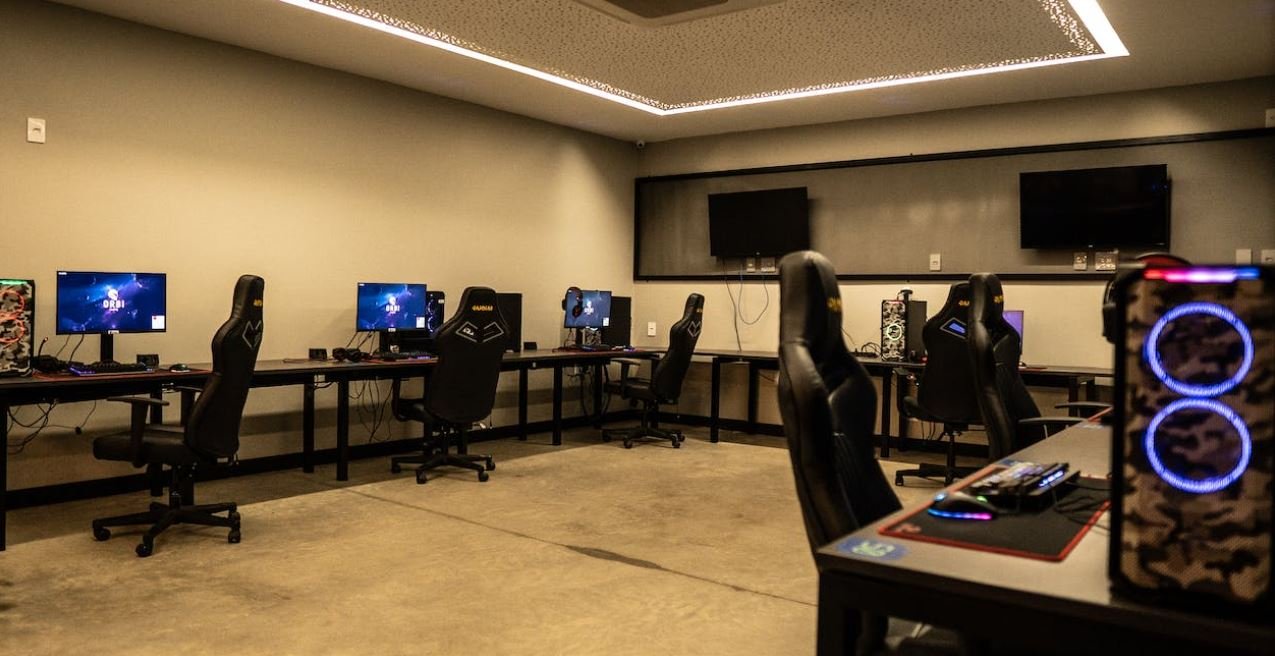Music Games for Kids
Introducing music to children at a young age can have numerous benefits for their development. It helps improve their cognitive skills, coordination, creativity, and self-expression. One fun and interactive way to incorporate music into their lives is through music games. These games not only entertain kids but also foster a love for music and can even inspire them to learn to play a musical instrument. In this article, we will explore some popular music games for kids and the benefits they offer.
Key Takeaways:
- Music games can help improve cognitive skills, coordination, creativity, and self-expression in children.
- They provide an interactive and engaging way for kids to learn about music.
- Playing music games can inspire children to further explore and learn to play musical instruments.
1. **One popular music game for kids is “Musical Chairs”**. It is a classic game where children dance or march around a circle of chairs while music plays. When the music stops, they have to find a chair to sit on. One chair is removed after each round, and the player who cannot find a chair is out. This game not only encourages physical activity but also enhances listening skills as kids have to pay attention to the music to know when it stops.
2. *Online music games, such as “Music Memory”*, are perfect for kids who enjoy spending time on electronic devices. These games typically involve listening to a sequence of musical notes and then rearranging or reproducing the sequence. They help improve memory, pattern recognition, and auditory skills. Additionally, they introduce children to different genres of music and instruments.
| Benefits | Description |
|---|---|
| Improved cognitive skills | Music games stimulate brain activity and enhance problem-solving abilities. |
| Enhanced creativity | Through music games, children can express themselves creatively and experiment with sounds. |
| Better coordination | Moving and dancing to music in games helps improve children’s overall coordination and motor skills. |
3. **Rhythm games** are another popular choice among kids. These games involve tapping or playing virtual instruments in time with the rhythm of a song. They help develop a sense of timing, rhythm comprehension, and hand-eye coordination. Some rhythm games also allow kids to create their own music compositions, fostering their imagination and musicality.
Interesting Statistics about Music Education:
| Statistic | Percentage |
|---|---|
| Students involved in music outperform their non-musical peers in SAT scores. | 63% |
| Music education can improve language skills and reading ability. | 85% |
| Children who participate in music activities have a higher level of neural processing. | 90% |
4. *”Name that Tune”* is a popular music game that challenges kids to identify the title or artist of a song based on a short clip. This game helps develop listening skills and musical knowledge. It can be played with various genres of music, introducing children to different musical styles.
- Music games provide a fun and interactive way for kids to learn about music.
- They can inspire children to explore and develop an interest in playing musical instruments.
- Playing music games improves cognitive skills, coordination, creativity, and self-expression.
Overall, music games are a valuable tool for introducing children to the world of music and enhancing their development. By engaging with music in a playful and interactive manner, kids can reap the numerous benefits it offers. Whether it’s dancing to the rhythm, identifying melodies, or creating their own compositions, these games provide a fun and educational experience that can lay a solid foundation for a lifelong love of music.

Common Misconceptions
Music Games for Kids
There are several common misconceptions that people have when it comes to music games for kids. These misconceptions can often lead to misunderstandings and missed opportunities for children to develop their musical abilities and enjoy the benefits of playing music games. By addressing these misconceptions, we can better appreciate the value that music games bring to children’s lives.
Music games are only for entertainment
- Music games for kids are not just about entertainment, but also about learning and skill-building.
- These games can help children develop their musicality, rhythm, and coordination.
- Music games provide a fun and interactive way for kids to engage with music and develop a lifelong passion for it.
Music games provide limited educational value
- Contrary to this belief, music games can actually have profound educational benefits for children.
- They can enhance cognitive abilities, such as memory, attention, and problem-solving skills.
- Music games often require children to listen and analyze music, helping them develop their auditory discrimination and critical thinking abilities.
Music games are only for musically talented children
- Music games are suitable for children of all musical abilities, not just those who are naturally musically inclined.
- These games can help nurture a child’s musical talents and give them the confidence to explore and express themselves musically.
- Playing music games can provide a non-intimidating and enjoyable way for all children to engage with music and foster their creativity.
Music games only teach basic music concepts
- While some music games do focus on introducing basic music concepts, many others offer more advanced lessons and challenges.
- These games can help children develop a deeper understanding of musical theory and explore different genres and styles of music.
- Music games can also teach children about music history, famous composers, and the cultural significance of various musical traditions.
Music games encourage passive listening rather than active participation
- On the contrary, music games actively engage children in creating and performing music.
- They often require children to play virtual instruments, sing, or follow music notation to complete challenges.
- Music games can foster a sense of active participation and enable children to experience the joy of making music themselves.

Music Games for Kids
Music games for kids are a fun and interactive way to introduce children to the world of music. These games not only entertain, but also educate children about different musical elements such as rhythm, melody, and harmony. Here are ten exciting tables showcasing various aspects of music games for kids:
Rhythm Games
Table illustrating different rhythm games and their descriptions:
| Game | Description |
|---|---|
| Groove Master | A game where kids copy and repeat rhythmic patterns. |
| Rhythm Race | A race game that helps kids practice rhythm recognition and accuracy. |
| Drum Hero | Children play virtual drums to follow along with popular songs. |
Melody Games
Table showcasing melody games that enhance children’s understanding of musical tunes:
| Game | Description |
|---|---|
| Musical Match | A game that asks kids to match musical notes to their corresponding names. |
| Melody Maker | Children create their own melodies using a virtual keyboard. |
| Tune Train | Kids listen to short melodies and identify their starting notes. |
Instrument Games
Table highlighting instrument games that introduce children to various musical instruments:
| Game | Description |
|---|---|
| Instrument Safari | Children explore a virtual jungle, learning about instruments along the way. |
| Virtuoso Violin | Kids play a virtual violin, learning proper finger placement and technique. |
| Brass Blast | A game that teaches children about different brass instruments and their sounds. |
Music Theory Games
Table showcasing games that provide a foundation in music theory:
| Game | Description |
|---|---|
| Note Ninja | Children play a game focused on note recognition and identification. |
| Rhythm Riddles | A game where kids solve riddles by identifying correct rhythmic patterns. |
| Harmony Havoc | Kids create harmonious chord progressions in a fun and interactive way. |
Music Trivia Games
Table presenting trivia games that expand children’s knowledge of musical facts:
| Game | Description |
|---|---|
| Music Maestro | A game that quizzes kids on famous composers, musical genres, and historical events. |
| Instrument IQ | Children test their knowledge by identifying various musical instruments. |
| Music Memory Game | A memory matching game featuring musical symbols, notes, and instruments. |
In conclusion, music games for kids provide an entertaining and educational platform for children to explore the world of music. These interactive games help develop crucial skills such as rhythm awareness, melody comprehension, instrument recognition, music theory, and trivia knowledge. By engaging children in enjoyable musical activities, these games foster a lifelong appreciation and love for music.
Frequently Asked Questions
What are music games for kids?
Music games for kids are interactive activities designed to help children develop their musical skills and knowledge in a fun and engaging way. These games often involve elements such as rhythm, melody, pitch recognition, and instrument identification.
What are the benefits of music games for kids?
Music games for kids offer numerous benefits, including:
- Enhancing cognitive skills
- Improving hand-eye coordination
- Fostering creativity and self-expression
- Developing a sense of rhythm and timing
- Promoting listening skills
- Increasing musical knowledge and appreciation
What age group are these music games suitable for?
Music games for kids are typically designed for children between the ages of 3 and 12. However, some games may have variations for different age groups or adjustable difficulty levels to cater to a wider range of ages and abilities.
Are these games accessible for children with disabilities?
Many music games for kids are designed to be inclusive and accessible for children with disabilities. Features such as customizable settings, alternative control options, and visual cues can make these games more inclusive for children with different needs.
Can these games be played on different devices?
Yes, music games for kids can often be played on various devices, including computers, tablets, smartphones, and gaming consoles. It is essential to check the specific system requirements for each game to ensure compatibility.
Are these games free to play or do they require payment?
The availability and cost of music games for kids vary. Some games may have a free version with limited features or in-app purchases, while others may require a one-time purchase or subscription. It is advisable to check the pricing details before accessing or downloading any game.
Do these games require any prior musical knowledge?
No prior musical knowledge is usually required to play music games for kids. These games are designed to introduce children to basic musical concepts and build their knowledge progressively. Beginners can enjoy them without feeling overwhelmed.
How can these games be beneficial for children interested in learning music?
For children interested in learning music, these games can serve as a supplementary learning tool. They provide an interactive and enjoyable way to reinforce musical concepts, practice skills, and build a foundation for further musical education.
Can I customize the difficulty level in these games?
Some music games for kids offer customizable difficulty levels to cater to individual preferences and skill levels. These options allow players to adjust the game’s challenge according to their abilities, ensuring an enjoyable and rewarding experience.
Where can I find music games for kids?
Music games for kids can be found on various platforms, including app stores, online gaming websites, and educational websites. Searching using keywords like “music games for kids” or specific game titles can help you discover a wide range of options.




